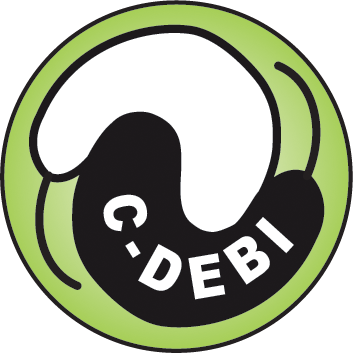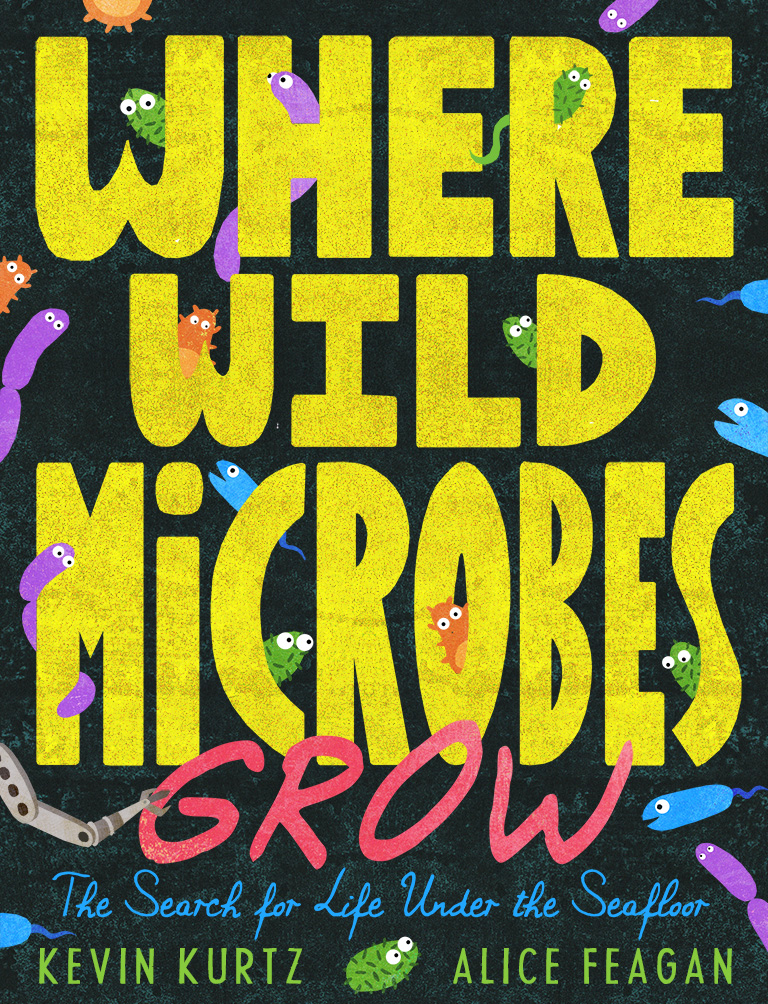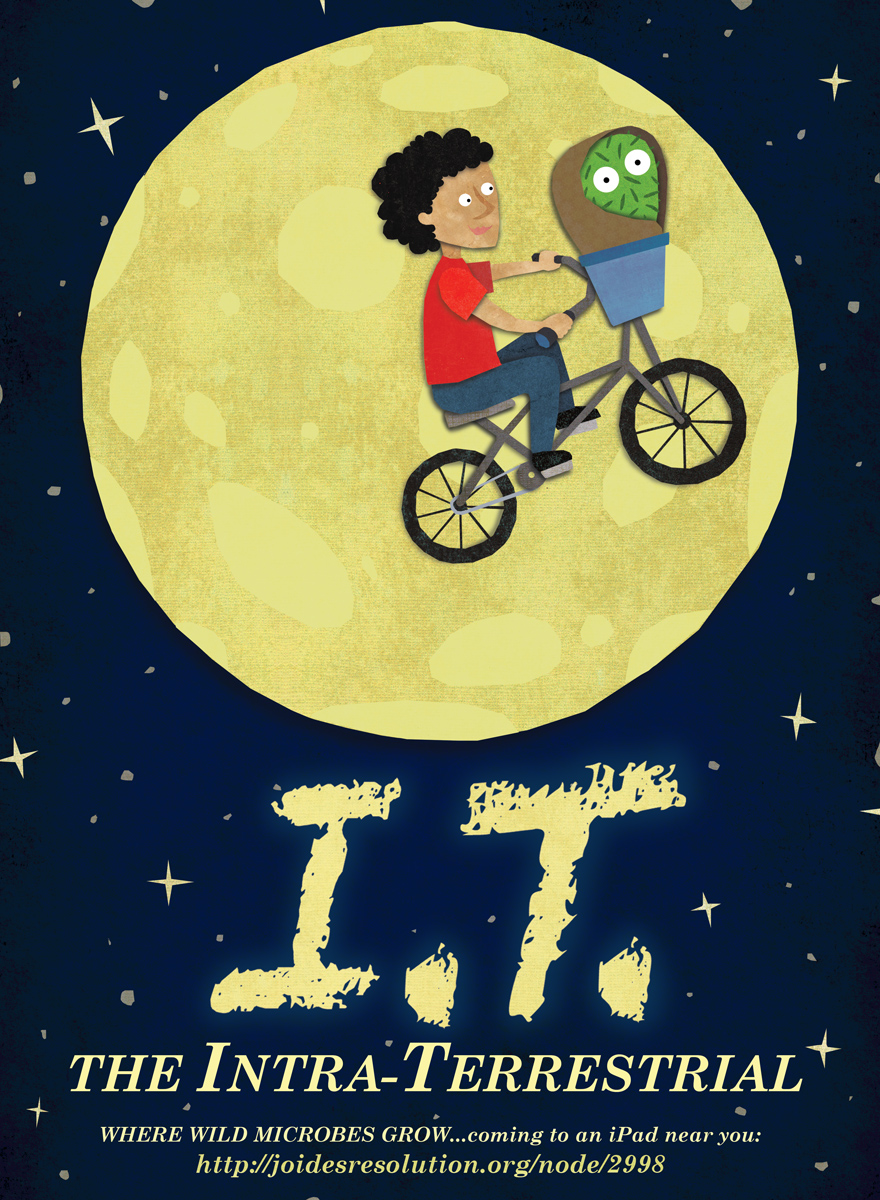C-DEBI Newsletter – October 15, 2015

 |
| C-DEBI Newsletter – October 15, 2015 This newsletter is also accessible via our website. |
Education & Outreach
C-DEBI E&O: Free Where Wild Microbes Grow iBook and PDF out today on iTunes! Help spread the word!
Please help us promote this C-DEBI education grant-supported eBook for K-12 students to anyone you know, and especially teachers, as they will help us reach the most kids! Also, please be sure to encourage anyone who downloads and likes the iBook version to leave a review on iTunes. The way iTunes is set-up, the more reviews the Where Wild Microbes Grow receives, the easier it will be to find!
| Some materials and links for distribution: | ||
|---|---|---|
 |
 |
|
The Data Incubator
The Data Incubator is an intensive 7 week fellowship that prepares the best scientists and engineers with advanced degrees to work as data scientists. Regular Deadline: October 19, 2015.
The Rolex Scholarships
Application deadline: December 15, 2015.
Publications
The ISME Journal
Bacterial diversity and community composition from seasurface to subseafloor
Emily A. Walsh, John B. Kirkpatrick, Scott D. Rutherford, David C. Smith, Mitchell Sogin and Steven D’Hondt*
*C-DEBI Contribution 269
We investigated compositional relationships between bacterial communities in the water column and those in deep-sea sediment at three environmentally distinct Pacific sites (two in the Equatorial Pacific and one in the North Pacific Gyre). Through pyrosequencing of the v4–v6 hypervariable regions of the 16S ribosomal RNA gene, we characterized 450 104 pyrotags representing 29 814 operational taxonomic units (OTUs, 97% similarity). Hierarchical clustering and non-metric multidimensional scaling partition the samples into four broad groups, regardless of geographic location: a photic-zone community, a subphotic community, a shallow sedimentary community and a subseafloor sedimentary community (greater than or equal to 1.5 meters below seafloor). Abundance-weighted community compositions of water-column samples exhibit a similar trend with depth at all sites, with successive epipelagic, mesopelagic, bathypelagic and abyssopelagic communities. Taxonomic richness is generally highest in the water-column O2 minimum zone and lowest in the subseafloor sediment. OTUs represented by abundant tags in the subseafloor sediment are often present but represented by few tags in the water column, and represented by moderately abundant tags in the shallow sediment. In contrast, OTUs represented by abundant tags in the water are generally absent from the subseafloor sediment. These results are consistent with (i) dispersal of marine sedimentary bacteria via the ocean, and (ii) selection of the subseafloor sedimentary community from within the community present in shallow sediment.
Special Issue of Frontiers in Microbiology: manuscript submission deadline extended
Workshops & Activities
IODP-USSSP: Guaymas Basin Workshop, November 7-9, 2015, Puerto Vallarta, Mexico – APPLICATIONS DUE TOMORROW!
Conveners: Ivano Aiello (Moss Landing Marine Laboratories), Andreas Teske (University of North Carolina at Chapel Hill), Christina Ravelo (University of California, Santa Cruz).
Workshop Rationale and Objectives: the workshop’s goal is to create renewed impetus towards the formulation of a drilling proposal to bring the R/V JOIDES Resolution to the Guaymas Basin in the Gulf of California (GOC). The GOC represents a singular example of interactions between tectonics, sedimentation and microbial life in a very young ocean formed by translation and oblique rifting. It has been more than 30 years since the D/V Glomar Challenger drilled this young basin during ODP Leg 64. However, today’s scientific questions, approaches and methodologies in the relevant fields of deep life tectonics and paleoceanography have evolved so far that a new, multidisciplinary re-examination of Guaymas Basin by deep-sea drilling is required. Over the last few years, several site survey cruises have collected sedimentological, microbiological, 2D and 3D seismic, and heat flow data from different parts of the Guaymas Basin region. These new and important datasets form the basis for a renewed effort to produce a drilling proposal that builds on an earlier joint US-American, Mexican and European IODP proposal (Full-833) that targeted the hydrothermally-influenced deep subsurface sediments and basaltic sills of Guaymas Basin for a comprehensive study integrating the extent, activity and limits of life in this energy- rich environment with geochemical, sedimentological and palaeoceanographic characterization. Applications due October 16, 2015.
AGU 2015: Ignite@AGU: Submit a Talk Proposal
The popular science storytelling event Ignite@AGU will return to the 2015 American Geophysical Union Fall Meeting in San Francisco, CA. Sponsored by NASA’s Applied Sciences Program and held in partnership with the ESIP Federation and AGU’s Earth and Space Science Informatics Section, the event enables scientists to showcase their professional and personal interests through fast-moving, creative presentations. Do you have a deep passion for your field of research? An interesting fieldwork story? A unique perspective on your scientific domain? That’s what we want to hear you talk about at Ignite. All presentations are five minutes; you create 20 slides and we’ll set them up to auto-advance every 15 seconds. We’ll also provide a venue and an enthusiastic, diverse audience who will give you a moment to shine. Contact rebeccafowler@esipfed.org if you have questions and check out the line-up from the 2014 Ignite@AGU to learn more. The call for presenters closes at midnight ET on November 02, 2015.
C-DEBI: Annual Meeting Summary. October 5-6, 2015,Sanctuary Beach Resort, Marina, California, USA
The focus of this Annual Meeting was integration and collaboration. At that time, we knew that we had been renewed and discussed future plans as well as reported on active C-DEBI research projects. The purpose of the meeting was to continue to give community members from different field sites and/or with different interests a significant opportunity to make new connections that will help us to collectively solve especially interesting problems in study of subsurface life. Consequently, a relatively large fraction of the meeting was set aside for (i) many very brief presentations and (ii) open-mic discussions. This annual meeting was preceded by a C-DEBI/MARINE Graduate Student and Postdoctoral Professional Development Workshop on October 4, 2015 co-hosted by MARINE (Monterey Area Research Institutions’ Network for Education). This day-long workshop “Making the Transition from Graduate Studies to the Interdisciplinary Workforce” aimed to better prepare the participants as future science leaders. [final agenda]
25th International Geological Congress, Cape Town, South Africa, August 27-September 4, 2016: IODP Symposium call for abstracts
This symposium appears under the Marine Geosciences and Oceanography theme. The abstract submission is now open until January 2016.
Proposal Calls
IODP-USSSP: Schlanger Ocean Drilling Fellowship Program
The Schlanger Ocean Drilling Fellowship Program offers merit-based awards for outstanding graduate students to conduct research related to the International Ocean Discovery Program. The Fellowship year begins in either June or August (summer or fall semester). During the following summer, at the conclusion of the fellowship, Schlanger Fellows may travel to Lamont-Doherty Earth Observatory to present the initial results of their research and take part in U.S. Science Support Program-related activities. Fellowship awards are $30,000 for a 12-month period and are made to the fellow’s home institution. The entire amount is intended to be applied to the research project, student stipend, tuition, benefits, and, if necessary, related travel. No part of the award is to be used to cover institutional overhead, administrative costs, or permanent equipment. Award start dates can be negotiated on an individual basis—but in general are based on the academic year and following summer. The fellowship is open to all graduate students enrolled at U.S. institutions in full-time M.S. or Ph.D. programs. Approval of the research project by the student’s faculty advisor is necessary to begin the application process. Application deadline: November 15, 2015.
NOAA: Ocean Exploration 2016 Funding Opportunity
NOAA’s Office of Ocean Exploration & Research (OER) is soliciting pre-proposals followed by full proposals for bold, innovative, multi-partner, interdisciplinary ocean exploration projects in the following areas of interest: 1) physical, chemical and biological characterizations of unknown or poorly known regions of the deep ocean, especially areas deeper than 500 m. 2) baseline characterization of marine archaeological resources at any depth; and 3) technology that advances ocean exploration and has application to NOAA related missions. Through this announcement, NOAA OER anticipates the availability of approximately $3 million. The actual funding amount is contingent upon FY 2016 Congressional appropriations. OER estimates making 3-10 awards that will range from about $50,000 to $1.5 million. Funding for ship or submersible assets, if required, must be included in the proposal. Leveraging with ship time supported outside of this funding opportunity is strongly encouraged. Closing date for applications: January 8, 2016.
IODP-USSSP: Apply to Sail:Expeditions 367 and 368, South China Sea Rifted Margin
The International Ocean Discovery Program (IODP) has begun accepting applications for two South China Sea Rifted Margin expeditions aboard the JOIDES Resolution. These two expeditions aim to understand the mechanisms of lithospheric breakup at a non-volcanic rifted margin. The South China Sea (SCS) margin shows similarities to the hyper-extended Iberia-Newfoundland margins, possibly including exhumed and serpentinized mantle within the Continental-Ocean-Transition (COT). However, modeling studies suggest that there can be mechanisms of plate weakening other than serpentinization of sub-continental lithospheric mantle and two competing models for plate rupture have widely different predictions for the development of the SCS margin. The proposed drilling during Expeditions 367 and 368 will aim to determine the nature of crust within the COT and constrain (a) post-breakup crustal subsidence, (b) how soon after break-up igneous crust started to form, (c) timing of rifiting, and (d) rate of extension. Expedition 367 is currently scheduled from 7 February through 9 April 2017 and Expedition 368 is scheduled from 9 April through 9 June 2017. Additional information about these expeditions can be found here. Opportunities exist for researchers, including graduate students, in all specialties, including sedimentologists, structural geologists, paleontologists, biostratigraphers, petrologists, paleomagnetists, petrophysicists, borehole geophysicists, microbiologists, and inorganic/organic geochemists. U.S.-affiliated scientists interested in participating in these expeditions should apply to sail through the U.S. Science Support Program, by visiting http://usoceandiscovery.org/expeditions. The deadline to apply is January, 15 2016.
IODP: Site Survey Data Bank (SSDB): Data submission deadline
IODP Proponents: SSDB provides tools for scientists submitting drilling proposals to IODP to upload site survey data in support of their proposals. Proposals with data submitted before the deadline will be reviewed at the next panel meeting. Data submission deadline: November 02, 2015.
NSF: Graduate Research Fellowship Program (GRFP)
NSF also encourages undergraduate seniors to apply. Application deadline (Geosciences; Life Sciences): October 26, 2015.
Exploration Postdoctoral Fellow, Arizona State University
Complete applications and separate letters of reference are due by October 31, 2015.
Lawrence Postdoctoral Fellowship
The Lawrence Fellowship is a highly-competitive postdoctoral position at LLNL that is open to all technical disciplines. Application deadline: November 01, 2015.
National Academies: Research Associateships for Graduate, Postdoctoral and Senior Researchers
There are four annual review cycles and the next closes November 01, 2015.
Simons Foundation: Early Career Investigator in Marine Microbial Ecology and Evolution Awards
The deadline for receipt of letters of intent (LOI) is November 02, 2015.
IODP-USSSP: Proposals for Pre-Drilling Activities and Workshops
The U.S. Science Support Program (USSSP) accepts proposals on a rolling basis for pre-drilling activities and semi-annually for workshops (next deadline: December 01, 2015), related to the International Ocean Discovery Program (IODP).
NSF: Small Business Technology Transfer Program Phase I (STTR) Proposal Solicitation
Full proposal deadline: December 11, 2015.
NSF: Earth Sciences Postdoctoral Fellowships (EAR-PF)
Full proposal deadline: January 12, 2016
NSF: Geobiology and Low-Temperature Geochemistry Program Solicitation
Proposals accepted anytime.
Employment
Georgia Tech: Postdoc in Environmental Microbiology and Genomics
The Stewart and DiChristina labs at Georgia Tech are looking for a postdoctoral fellow to study the diversity, physiology, and evolution of metal reducing bacteria. The postdoc will work jointly with Drs. Stewart and DiChristina in the School of Biology. The work will involve collections at marine and freshwater field sites in the US, laboratory experiments, and a blend of bioinformatic, molecular, and physiological analyses. Research tasks will involve both culture-dependent and independent methods, with the latter focused on comparative analysis of meta-omic datasets to identify communities and pathways of metal reducers in the environment. The postdoc will be encouraged to develop independent lines of research within the broader goals of the project, and will work collaboratively with Dr. Stewart, Dr. DiChristina, and graduate students to perform research and synthesize results for publication. The ideal candidate will be enthusiastic, motivated by experimental and analytical challenges, and proficient in bioinformatics and molecular microbiology techniques. Candidates should have a Ph.D. focusing on environmental microbiology or bioinformatics (or a related topic). Knowledge of metal geochemistry and microbial evolution is highly desirable. This position begins in fall/winter 2015/2016. Funding is available for at least one year, with continuation contingent upon satisfactory progress in year one; applicants should express their ability to commit to the project for at least two years. Review of applications will begin on October 31, 2015 and continue until the position is filled.
UC Berkeley: Two faculty positions, Earth and Planetary Science
The University of California, Berkeley Department of Earth and Planetary Science invites applications for two positions at the Assistant Professor level with an expected start date of July 1, 2016. We seek outstanding candidates from any area of Earth and planetary science, with an emphasis on climate science, biogeochemical cycles, or Earth surface processes. Candidates whose research falls into one of these broad areas or their disciplinary interfaces are invited to apply. All applications should be submitted online by December 04, 2015.
Bigelow: Postdoctoral Research Scientist
The Bigelow Laboratory for Ocean Sciences is seeking a qualified and highly motivated individual for a postdoctoral research scientist position to lead independent research in the laboratory of Dr. Beth Orcutt related to microbial hydrocarbon (methane and oil) cycling in deep-sea and Arctic environments. This work would involve geomicrobiological investigations of deep-sea methane and oil seeps as well as Arctic permafrost lakes. Highly successful candidates would have experience with environmental science and/or microbiology or biogeochemistry, with working knowledge of molecular biology techniques (such as DNA extraction, amplification, and sequencing or bioinformatics), microscopy, or stable isotope techniques considered as highly desirable. Applicants must have at least a Ph.D in marine sciences, oceanography, environmental microbiology or similar field with a proven publication record. Experience with project management or fieldwork also desired. The position is offered for two years. The position is available immediately, but this may be negotiated. Review of applicants will begin on December 15, 2015.
USC: C-DEBI Seeks a Diversity Program Specialist
The full-time Program Specialist will serve as Diversity Specialist, helping to create, coordinate, and lead our education, outreach, and diversity efforts to serve our students, postdocs, faculty, and other participants at USC and across the nation. For more information and application instructions, please visit the USC careers website, job ID 1004620.
USC: Open-Rank, Tenured or Tenure-Track Faculty Position in Geobiology
For further information, please contact the Chair of the search committee, Jan Amend (janamend@usc.edu). Review of applications will begin October 15, 2015.
UCSC: C-DEBI Postdoctoral Research Opportunity in Marine Hydrogeology
More information on Fisher’s research group, projects, and specifications for preparing an application for this postdoctoral position can be found here. Please contact Fisher (afisher@ucsc.edu) with questions and/or to submit an application. Review of applications will occur in Fall 2015.
The application deadline is November 1, 2015.
Don’t forget to email me with any items you’d like to share in future newsletters! You are what makes our deep biosphere community!
C-DEBI is now on Twitter! Follow and tweet to us @deepbiosphere or tag #CDEBI.

